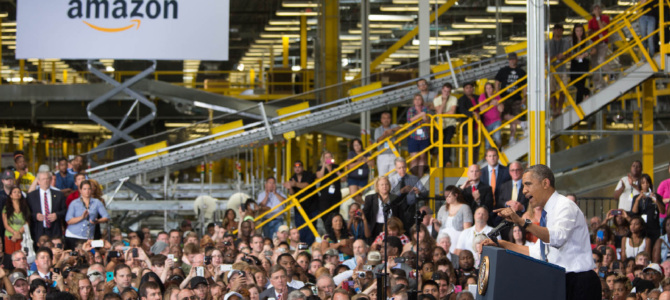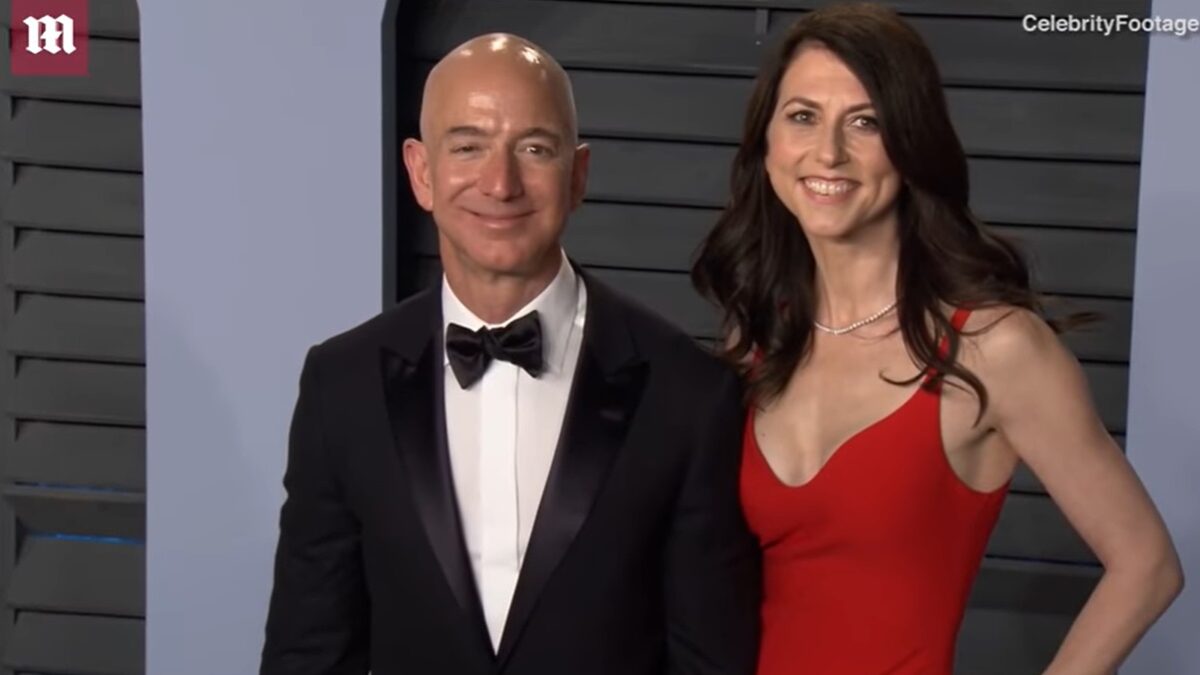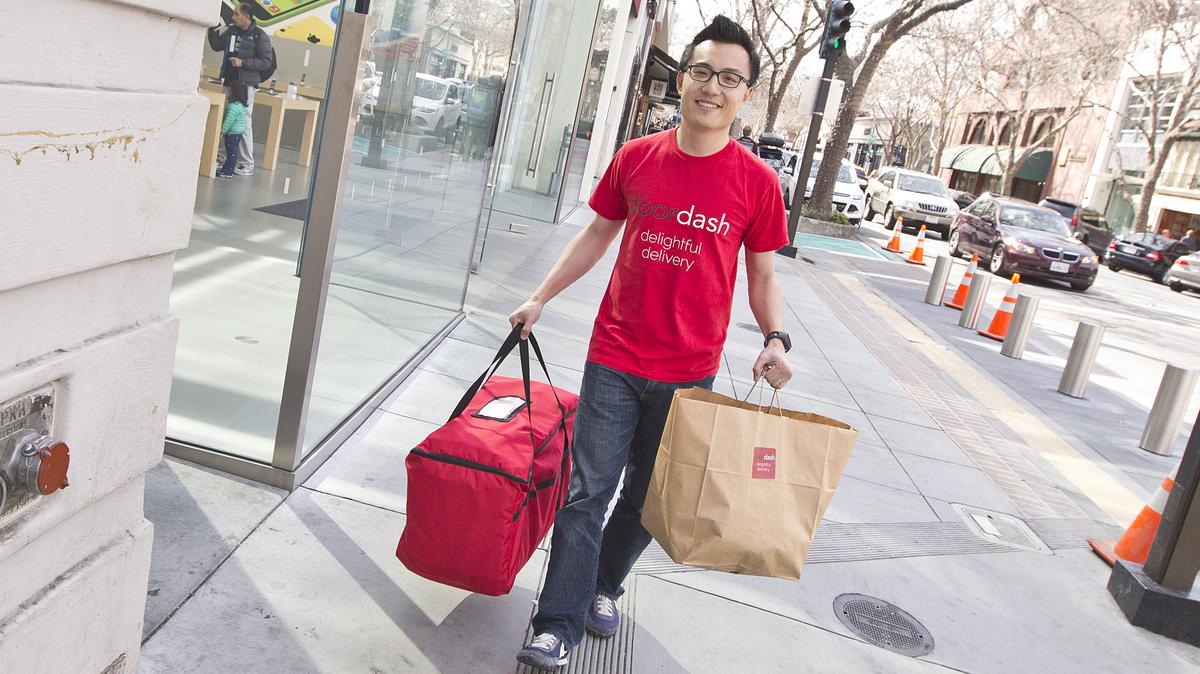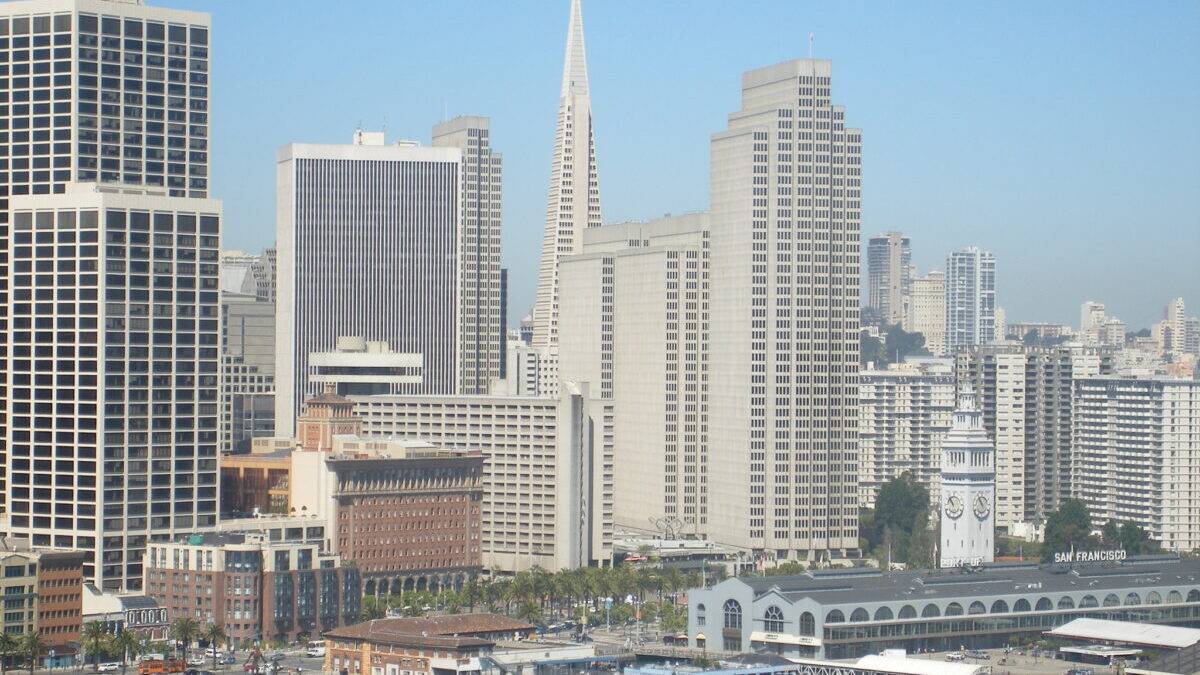
Voters hate corporate welfare. A 2016 Rasmussen poll found that nearly 70 percent of voters think “government and big business often work together in ways that hurt consumers and investors.” Americans also overwhelmingly think that corporations don’t pay their “fair share”—a September ABC News/Washington Post poll discovered that nearly two-thirds of Americans think large corporations don’t pay enough in taxes.
In this climate, Amazon’s success in recruiting targeted tax breaks to fund its second headquarters is remarkable. Amazon’s ability to secure special incentives provides a useful case study in how corporations can change the framing of the issue in their favor. Unfortunately, the end result is local residents, businesses, and government budgets harmed in the name of “job creation.”
Over the course of a month, Amazon solicited bids from localities, urging the passage of “special incentive legislation” to make bids more competitive. Cities immediately began falling over themselves to submit offers. Amazon claims it received 238 bids by the end of the solicitation period.
Not all of these cities publicly expressed their interest, but many did. Inhabitants of the Twittersphere were subjected to a deluge of corny videos that invariably included a forced “Alexa, where should Amazon establish its new headquarters?” line. Localities also offered predictably massive tax breaks. Newark, New Jersey, for example, offered Amazon a cool $7 billion—and that’s just the largest bid that’s been made public.
Voters Hate Corporate Welfare, When They Don’t Love It
In fairness, not all of the cities that submitted proposals for Amazon’s new headquarters offered special tax breaks. Yet how were so many other localities able to get away with offering packages of tax breaks? Put simply, voters don’t mind if they do. Surveys consistently find overwhelming levels of support for “economic incentives,” and it’s no different when the money is going to Amazon. A Morning Consult poll found that 67 percent of Americans support offering Amazon tax breaks in return for its new headquarters.
The appeal of Amazon is not hard to see. Amazon boasts that it will provide 50,000 workers with salaries averaging $100,000 a year, as well as billions of dollars of investment in the local community. Mayors see the opportunity to turn their state into a new tech hub, and dollar signs pop into their eyes. Imagine the effects on their political careers, not to mention the boost in tax revenue. Surely that’s worth a bit of taxpayer cash.
Although a bipartisan consensus seems to exist among politicians that economic growth can be achieved by offering special tax breaks, tax experts have arrived at the opposite conclusion. Organizations on the left, right, and center of the tax policy debate all have expressed strong skepticism about the effectiveness of targeted tax breaks. The problem with targeted tax breaks is that there are often unseen side effects.
The Bad Effects You Don’t See So Easily
The obvious downside is that the foregone revenue must be made up through higher tax rates on others. Americans generally seem to consider this a worthwhile trade, according to polls, but other pitfalls of targeted tax breaks are often indirect and hidden. For example, it is easy to point to the new jobs brought into a neighborhood as a result of tax breaks. Harder to see are the displaced jobs, as business are forced out by a new rival that gets preferential tax treatment.
Similarly, it is hard to accurately identify how much economic activity was brought to an area because of a targeted tax break. Tax policy is important to businesses, but often businesses receive economic incentives for activities they would have undertaken regardless. In other words, targeted tax breaks drain government budgets, require higher tax burdens on other individuals and competing businesses, and create an unequal playing field as established businesses are forced to compete against a newly subsidized competitor.
If local leaders convince Amazon to build its new headquarters in their state on the merits of its amenities, talent pool, or existing tax framework, then that is reason for celebration. But state and local governments should resist the urge to compete in a race to the bottom of ever-increasing tax incentives. Amazon will build its new headquarters somewhere, and localities should not offer Amazon an arm and a leg to “win” the sweepstakes. Voters shouldn’t be fooled: a targeted tax break is often just another way of describing corporate welfare.









